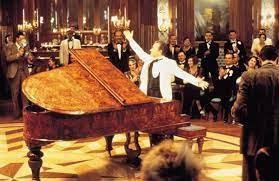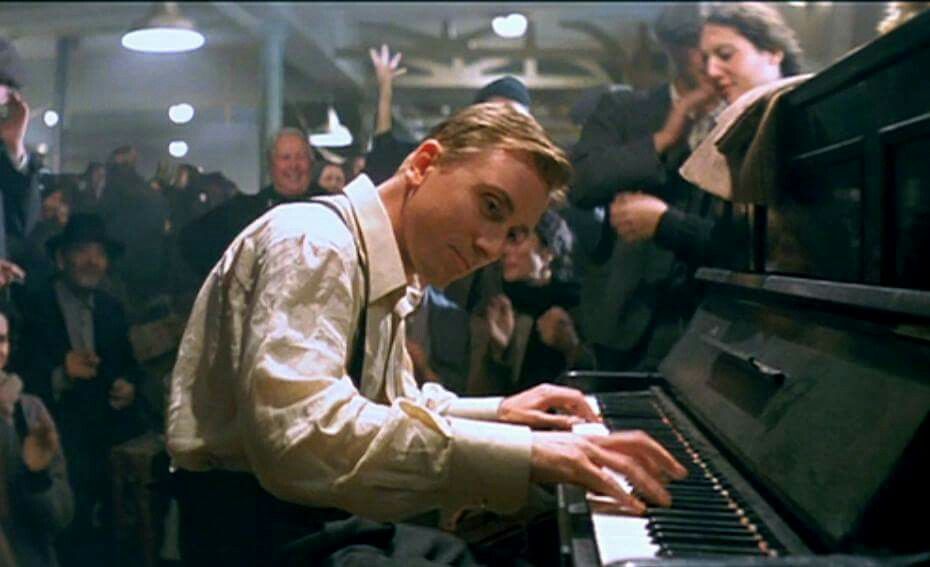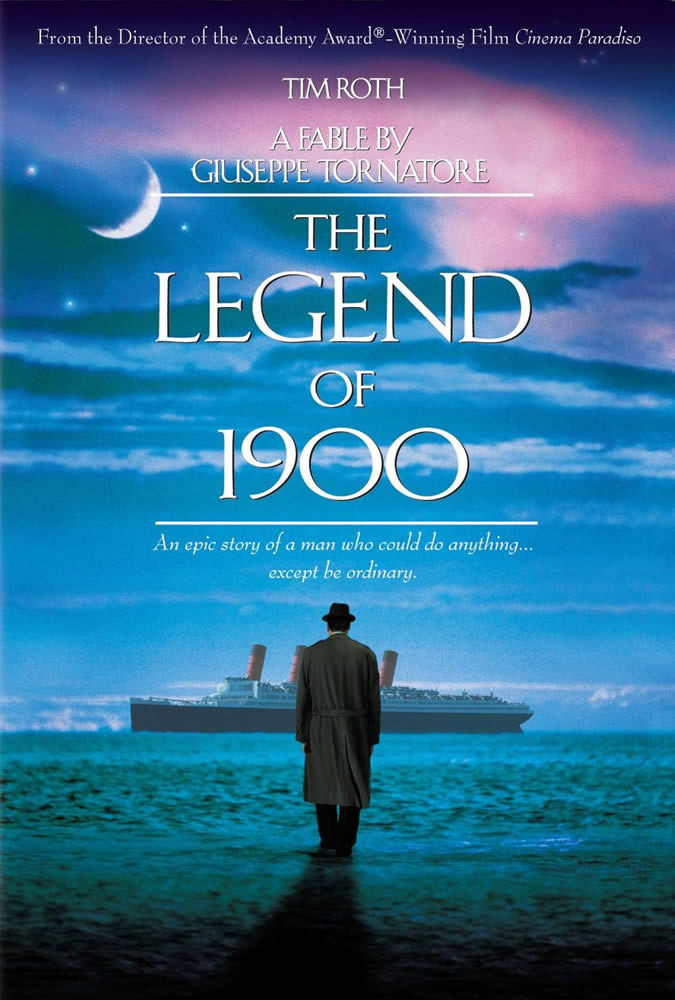The Legend of 1900″ is a literary masterpiece released by the famous Italian director Giuseppe Tornatore in 1998, and although twenty years have passed, it still shows its vitality across the ages, the film is full of romantic Latin colors, no fierce and wonderful gun battle scenes, no handsome men and women, only tells a legend of ordinary people, but unexpectedly succeeds in creating an American-style civilian hero 1900, and has won many accolades and praises. The movie is full of romantic Latin colors, no fierce and exciting gun battle scenes, no handsome men and women, but only tells a legend of ordinary people, but unexpectedly succeeded in creating an American-style civilian hero 1900, and received a lot of praise and praise.
The Legend of 1900″ tells the story of 1900, an abandoned baby on the first-class piano of the “Virginia”, who grows up on a steamship to become a talented pianist who makes the sea his home and is eventually martyred at the bottom of the ocean. The seemingly fictional tragedy of an artist is full of metaphors for human existence, leaving us with endless thoughts on human life and existence.
The director Tonadore is good at revealing human nature by focusing on the small people in the material society. In the film “The Sea Pianist”, he creates a legend in the style of a commoner. This legendary life is conveyed through the romantic and beautiful spatial presentation of the film and the beautiful and delicate images.

Tornadore used to like to use closed space as a narrative carrier. The otherworldly and love sequences built on “The Pianist at Sea” are handled through nostalgic graphic images, making the film reveal a distinctive chic and ingenious. The masterful soundtrack also succeeds in presenting a romantic and sentimental mood under the continuous music playing, which cooperates with each other to create this immortal classic story.
It is clear that Tonadore is a director with a knack for storytelling. He uses his own narrative skills to allow the audience to blend into the dream world while intertwining with reality. The director’s extensive recollections of the film’s temporal scenes obviously become a very important kind of skillful flashbacks in the entire storytelling. These numerous flashbacks constitute another narrative dimension and become the narrative subject of the story. In this unique way of storytelling, Tornadore enhances the dramatic tension of the legendary life of 1900 and better highlights the latent themes.

Meanwhile, the music occupies a very important part of the film. Composer Ennio Morricone’s music became an important part of the film. Morricone combines Jazz, Ragtime and classical music to create a unique and refreshing listening experience. Much of the film’s music is optimistic and lighthearted, and while there are many moments of melancholy and hesitation, it still blends well with the wider environment. The film is based on the use of the respective characteristics of music and film language to strengthen the musical expression and sense of style, successfully portraying the image of the 1900 sea pianist and leaving a deep impression on the audience
In “The Legend of 1900”, director Tonadore uses soft filming and warm emotions to stir up the protagonist’s long-lasting and moving grief, inadvertently finding your most sensitive and emotional nerves and gently touching them so that you will always remember it. The film itself, on an artistic level, drives the story through the characters’ fatalities, which makes perfect sense. The film doesn’t just want to tell an experience, it wants to get close to the heart. Therefore, the whole story is filled with people’s interpretation and reflection of themselves, allowing the viewer to re-visit their own long-buried souls through a pianist who has devoted his life to music.

Throughout the film, “The Legend of 1900” compares the difference between the soul’s habitat and the real material world by shaping 1900, thus creating this ordinary pianist who uses his life to defend his inner ocean. The director successfully uses the language of the camera to embody his profound and pure point of view, to grasp the sublime, exquisite, non-utilitarian and noble pleasures that people seldom pay attention to and appreciate, and to evoke, through the unique structure and expression method of cinematic art, a reflection on music and a rethinking of the situation of one’s own life and destination. It can be said that the film is worthy of being a classic work with a perfect combination of music and story core, both in terms of profoundness of the main idea and cinematic artistry.
